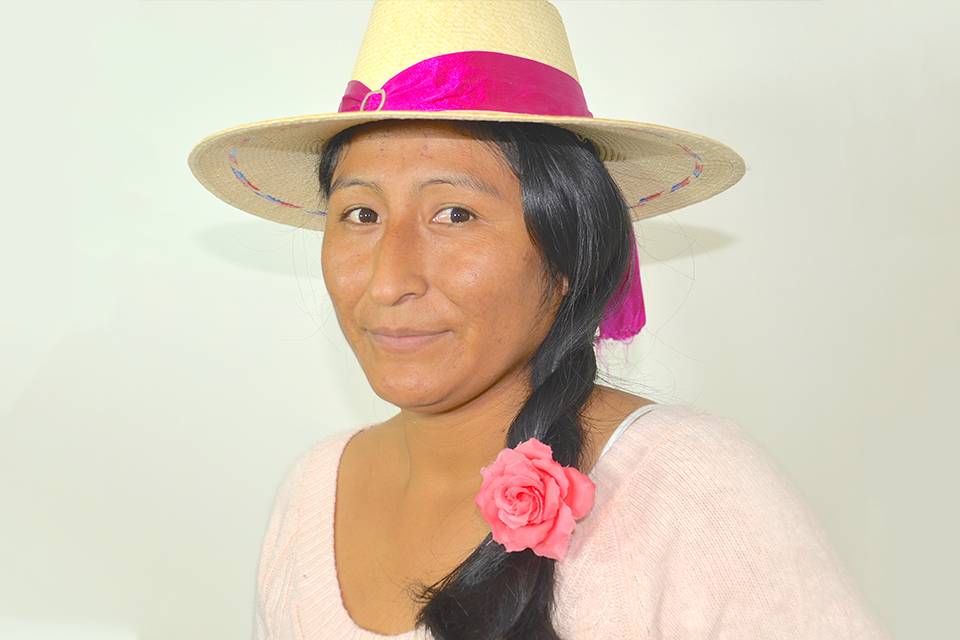Quinoa: the ancestral grain whose diversity of products creates opportunities for indigenous women
Date:

Indigenous women face even more significant challenges due to the COVID-19 crisis, which has also impacted their economic autonomy. The restrictions on traditional marketing spaces and channels have significantly reduced their income.
Through its Originarias programme, UN Women created Mercado Digital, a space where indigenous women entrepreneurs promote their businesses, products, and services online.
Respecting the ancestral traditions of each of the native peoples of Chile and the care of nature, Mercado Digital brings together products and services of 30 indigenous women entrepreneurs belonging to the Diaguitas, Aymaras, Likanantay, Mapuche, and Quechua native peoples. It allows them to promote a catalog that includes gourmet products, organic fruits, handicrafts, textiles, natural foods, as well as tourism and transportation services.
In this special edition of Indigenous Peoples' Day, UN Women interviewed Johana Mamani, a 35-year-old entrepreneur from Comuna Colchane, Escapiña, who is dedicated to cultivating quinoa and its derivatives.
Tell us about your business.
I produce quinoa, an ancestral grain present in the cultural tradition of the Aymara people.
MAQ'AM started in 2018. Everyone participates in this family enterprise, including my husband and children. My parents taught me to grow quinoa when I was seven years old. It is an extensive process that requires knowing how to fertilize the soil, sow, harvest, thresh and process the quinoa until it is ready for consumption. It is knowledge passed down from generation to generation. With our products, we seek to transmit in each bite the history, tradition, and dedication of an artisanal process, achieving a unique flavor.
I wanted to add value to my brand, so I sell not only quinoa for grain but also quinoa semolina, quinoa flour and my most innovative product, quinoa coffee.
How did the pandemic impact your business?
I used to sell all my products in person at fairs or exhibitions outside the region. When the pandemic struck, sales dropped, forcing us to innovate how we sold quinoa. Little by little, I got used to marketing through social media. I had to learn because I didn't know how to use Facebook at first, but now most of my customers contact me there or by WhatsApp.
In addition to the pandemic, climate change has affected us greatly. In the area, there is a water shortage and little rain, which has reduced the quinoa harvest. I have been observing this for the last four years or so. Now we are harvesting between 600 and 1,000 kilos of quinoa per harvest, while before, it was more than double that.
How was your transition to taking your business to a digital platform?
It wasn't easy, but thanks to workshops conducted by the UN Women's Originarias programme, I learned how to take photos of our products with my cell phone and publish them on social media. That's how I learned the importance of these digital channels to sell and expand my business. When it is face-to-face, you have a better opportunity to tell the customer the added value of the product and its story. On the other hand, when it is digital, it is more challenging to convey to customers the health benefits of quinoa and the importance of its cultivation for the Aymara culture.
What are the benefits of being part of the Originarias Digital Marketplace?
The most significant benefit of being part of the Digital Marketplace is showcasing my product and, telling people who I am and the production process with which I grow quinoa, having a deep respect for the land.
In the Digital Market, there is a video of me. I was very embarrassed to record myself, but I did it, and, little by little, I have been feeling more comfortable around the camera. That experience helped me. I recently had to record a video for a digital fair, and thanks to that experience, it was easier for me to record with my cell phone and present my product. It is an excellent experience for me to be part of Mercado Digital Originarias.
What challenges do indigenous women face in terms of economic empowerment?
One of the challenges is to show that we, as Aymara women, can also work the land, grow quinoa as entrepreneurs, be economically independent, and create our businesses.
What message would you give to other indigenous women entrepreneurs?
As an indigenous woman and an entrepreneur, I would advise women who want to become businesswomen not to get discouraged. I think you need to have a lot of perseverance. Starting a business is not easy. You have to go step by step to achieve what you want.